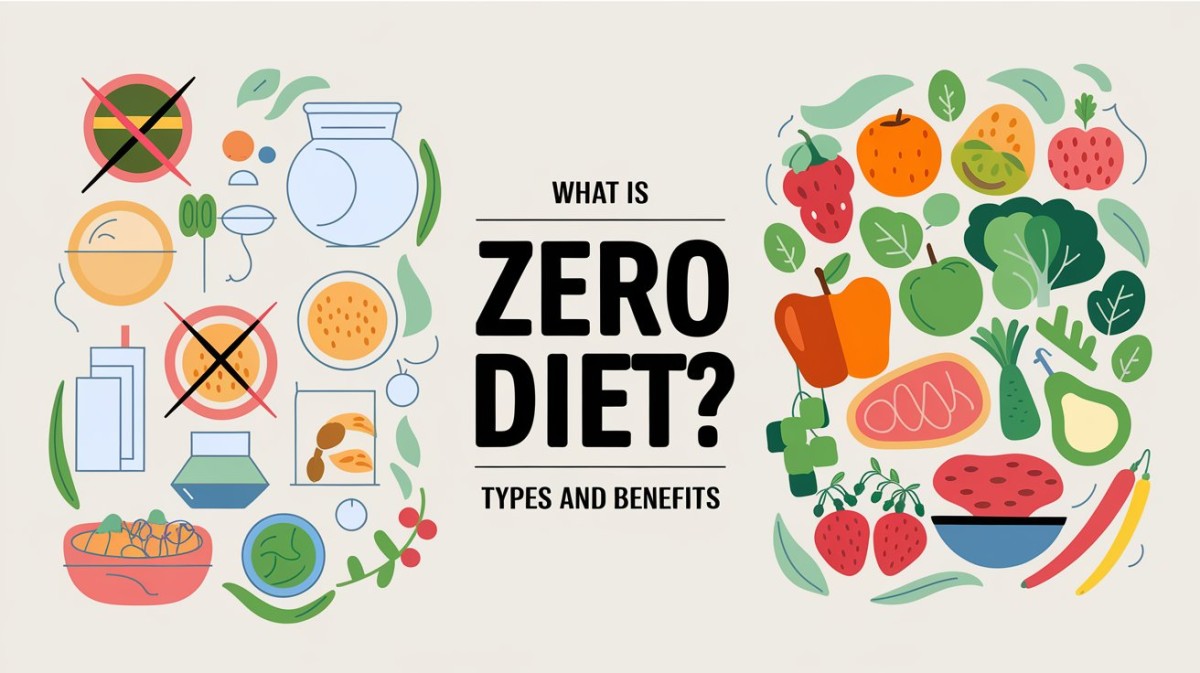Lately, the term “zero diet” has become increasingly popular among people interested in their health; however, its definition is rather ambiguous. While some people would call it a complete exclusion of certain types of foods, others would see it more as an allegiance to simple and minimalistic diet regimen.
Here, in this blog, we will discuss what the zero diet is, how it works, the benefits associated with it, and things to note when starting on the zero diet.
Understanding Zero Diet
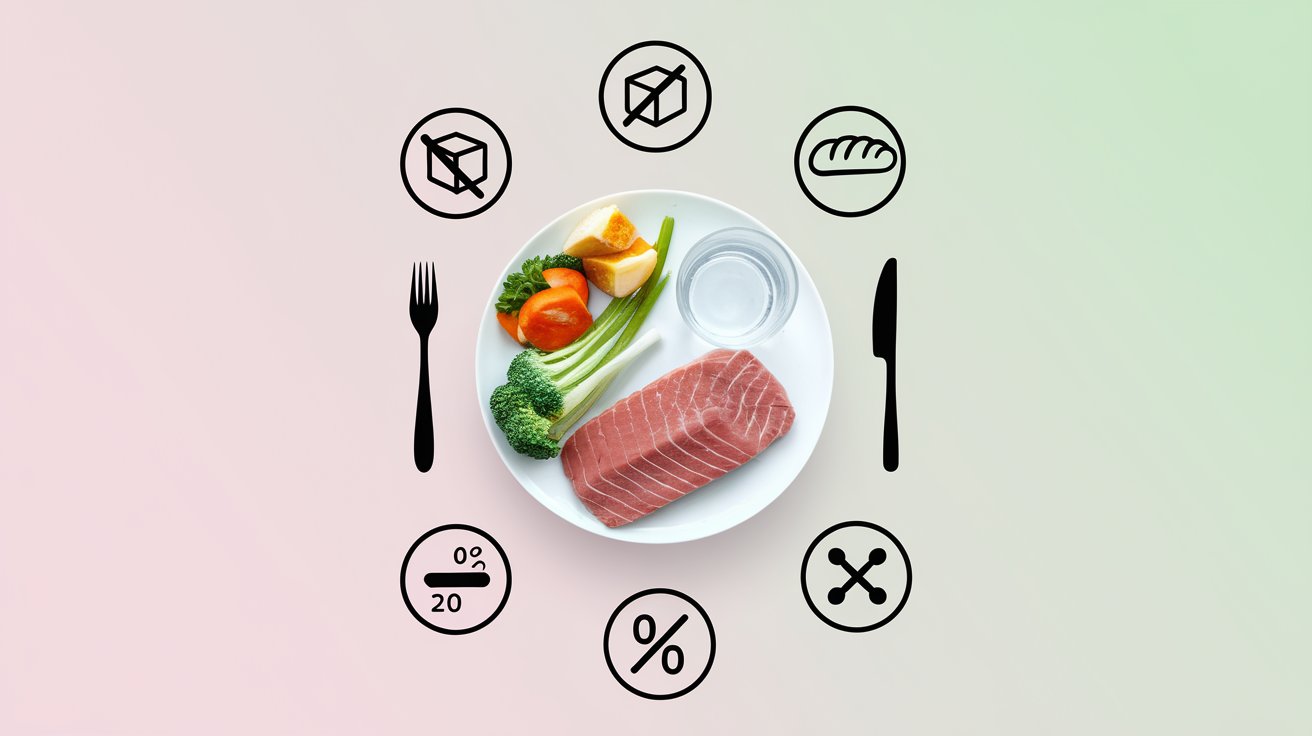
The term ‘zero diet’ is used, in the general sense, to describe an approach to the choice of food that minimises or excludes some types of products. This can refer to either keto diets, which eliminates carbs completely, no-sugar diets, which means no sugar consumption at all, and no calorie diets, which allows only for zero-calorie foods. Each variation has its own set of rules and intended outcomes, but they all share a common goal: to bring certain stereotyped changes and minimise risks to target certain health goals.
Types of Zero Diets
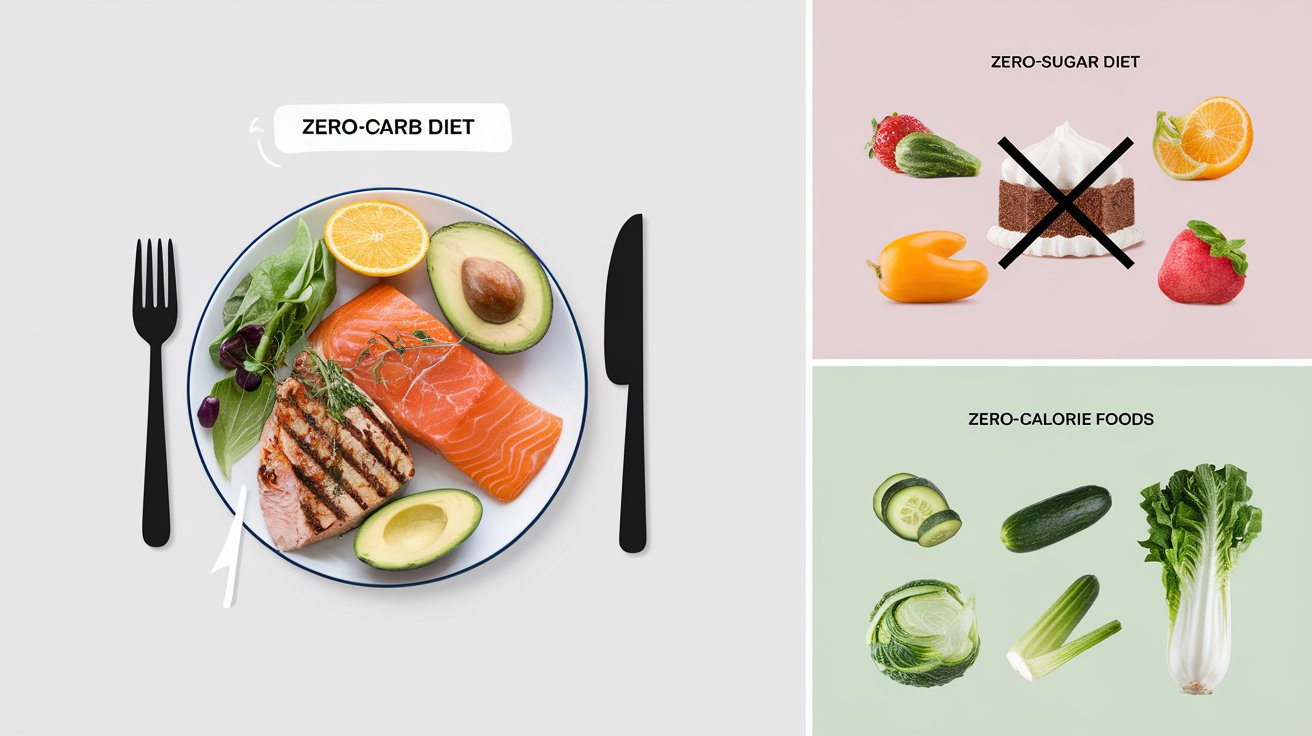
1. Zero-Carb Diet:
This extreme version of low-carb dieting eliminates nearly all carbohydrates from the diet, including fruits, vegetables, grains, and legumes. The focus is primarily on protein and fat sources such as meat, fish, eggs, and dairy products. While proponents argue that this can lead to rapid weight loss and improved metabolic health, critics warn about the potential risks of nutrient deficiencies and long-term sustainability.
2. Zero-Sugar Diet:
This approach involves cutting out all forms of added sugars from the diet. The goal is to reduce sugar intake to improve overall health, manage weight, and decrease the risk of chronic diseases like diabetes and heart disease. This diet encourages whole foods such as fruits, vegetables, whole grains, lean proteins, and healthy fats while avoiding processed foods high in added sugars.
3. Zero-Calorie Foods:
Zero calorie foods do not really fall into the category of diet but they do feature quite prominently in dieting plans. These foods have very few calories per portion yet have the ability to occupy a large amount of space or volume. Some such foods are cucumbers, celery, and lettuce. It can be used to prepare filling meals without necessarily adding more calories into your diet.
Principles of Zero Diet
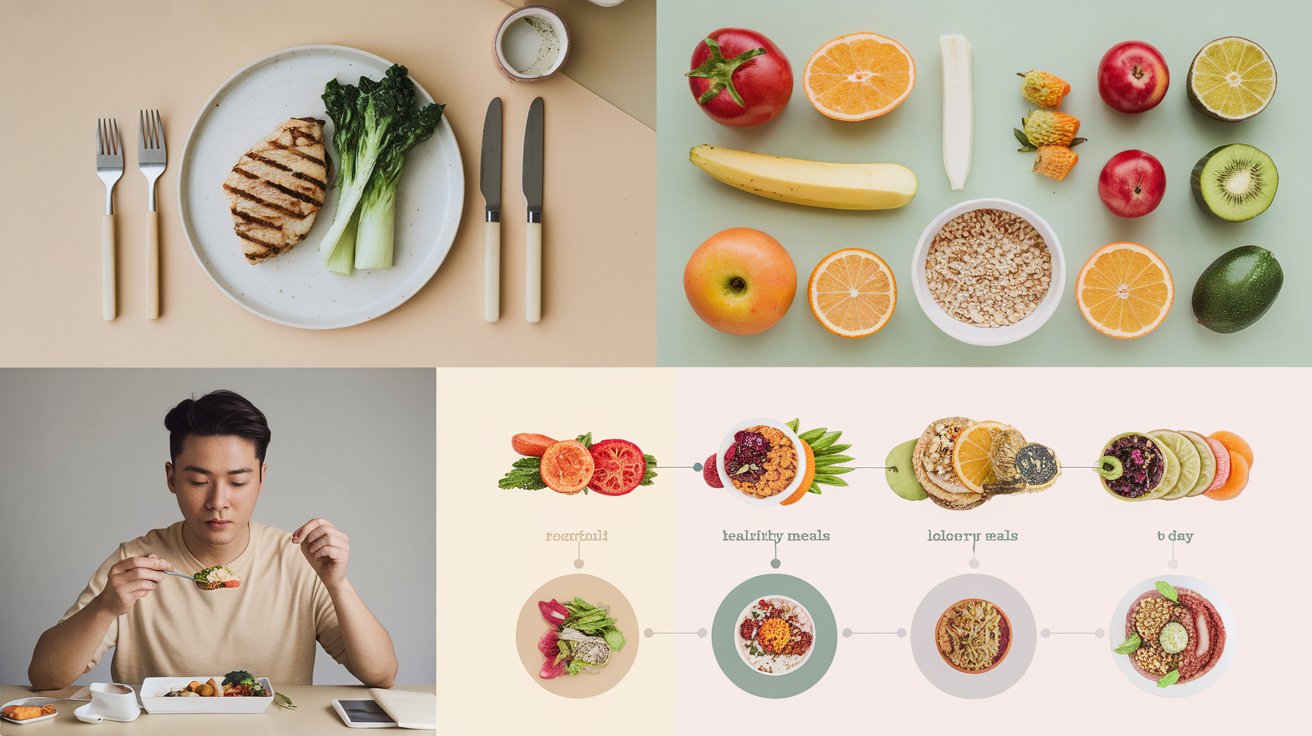
Adopting a zero diet typically involves several key principles:
1. Minimalism: The concept is about reducing the options for what you eat based on the assumption that the fewer the ingredients or the complete exclusion of some categories of foods, the healthier a particular diet is likely to be. This can be beneficial in avoiding decision making fatigue with regard to food choices.
2. Whole Foods Focus: Many zero diets emphasise consuming whole foods that are minimally processed. This means prioritising fresh fruits and vegetables, lean proteins, healthy fats, and whole grains while avoiding processed snacks and sugary beverages.
3. Mindful Eating: It goes a long way to approach the entire matter without a specific diet constraint by embracing mindfulness of the foods being consumed . This denotes not ignoring hunger signs, savouring food mindfully without distractions and recognizing signs of emotional eating.
4. Sustainability: While some may find short-term success with restrictive diets, the long-term sustainability of such approaches is crucial for lasting health benefits. A successful zero diet should be adaptable to individual lifestyles and preferences.
Potential Benefits of Zero Diet

1. Weight Loss:
A large number of people use the zero diets with the intention of losing weight. Some individuals, especially those who need more motivation to reduce their food intake, may find it easier to reduce their calorie intake especially if it means avoiding or sharply minimising certain foods, groups of foods or drinks.
2. Improved Health Markers:
For those with specific health concerns (e.g., diabetes), eliminating sugar or refined carbohydrates can lead to improved blood sugar control and overall metabolic health.
3. Enhanced Energy Levels:
Some individuals report that they started to feel more energetic when they made a conscious effort to avoid processed foods and consumed nutrient-dense foods only.
4. Simplified Meal Planning:
A minimalist approach can make grocery shopping and meal preparation less overwhelming by reducing the number of ingredients needed.
Considerations Before Starting a Zero Diet
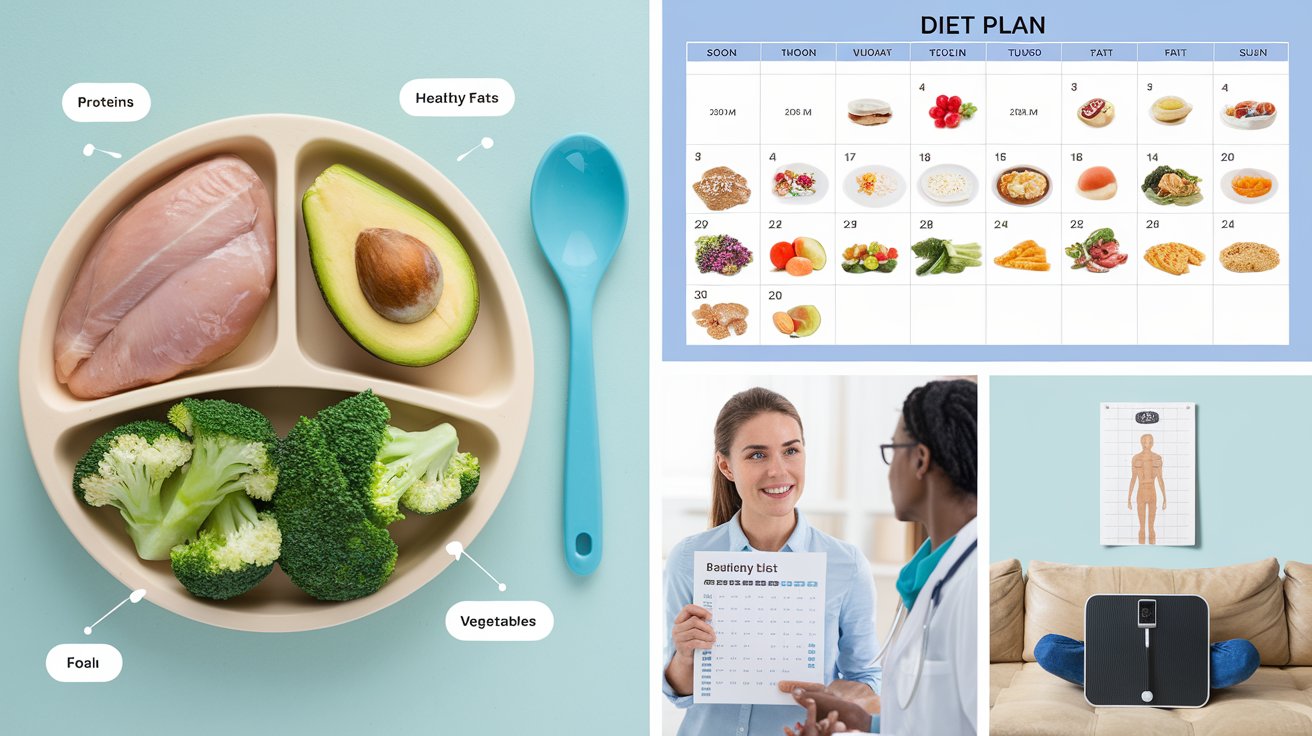
> Nutritional Balance: Completely eliminating food groups can lead to nutrient deficiencies over time if not carefully managed. It’s essential to ensure that your diet remains balanced with adequate vitamins and minerals.
> Sustainability: Diets which are very rigorous usually produce desirable outcomes within a very short period, but they are difficult to sustain for long. Think about whether the changes that you are making are possible in your day to day life.
> Consultation with Professionals: As with any nutritional intervention or any diet which eliminates some types of foods or macronutrients, it is recommended to seek advice from a doctor or a registered dietitian to receive individualised recommendations.
> Listen to Your Body: Pay attention to how your body responds to dietary changes. If you experience adverse effects or feel deprived, it may be worth reassessing your approach.
Conclusion
The term zero diet covers a wide range of interpretations, ranging from eradicating such types of nutrients as carbohydrates or sugars to the approach of minimalist nutrition. Although there are positive effects that can be gained from following this kind of strategy—for instance, weight loss and improvement in overall health—potential benefits have to be balanced with nutritional adequacy, and the ability to maintain this sort of diet in the long run.
In conclusion, the right dietary plan is one that will help you achieve what you intend for your body, nutritionally, without compromising on the nutrients that are optimally required for your health. Whether you decide to go totally against carbohydrates or try to minimise the intake of added sugars, the main point is to discover what would work for a person in the long term and wouldn’t harm his/her health.
Just a friendly reminder that changes done gradually are more effective than radical changes most of the time, so pat yourself on the back for perseverance!
